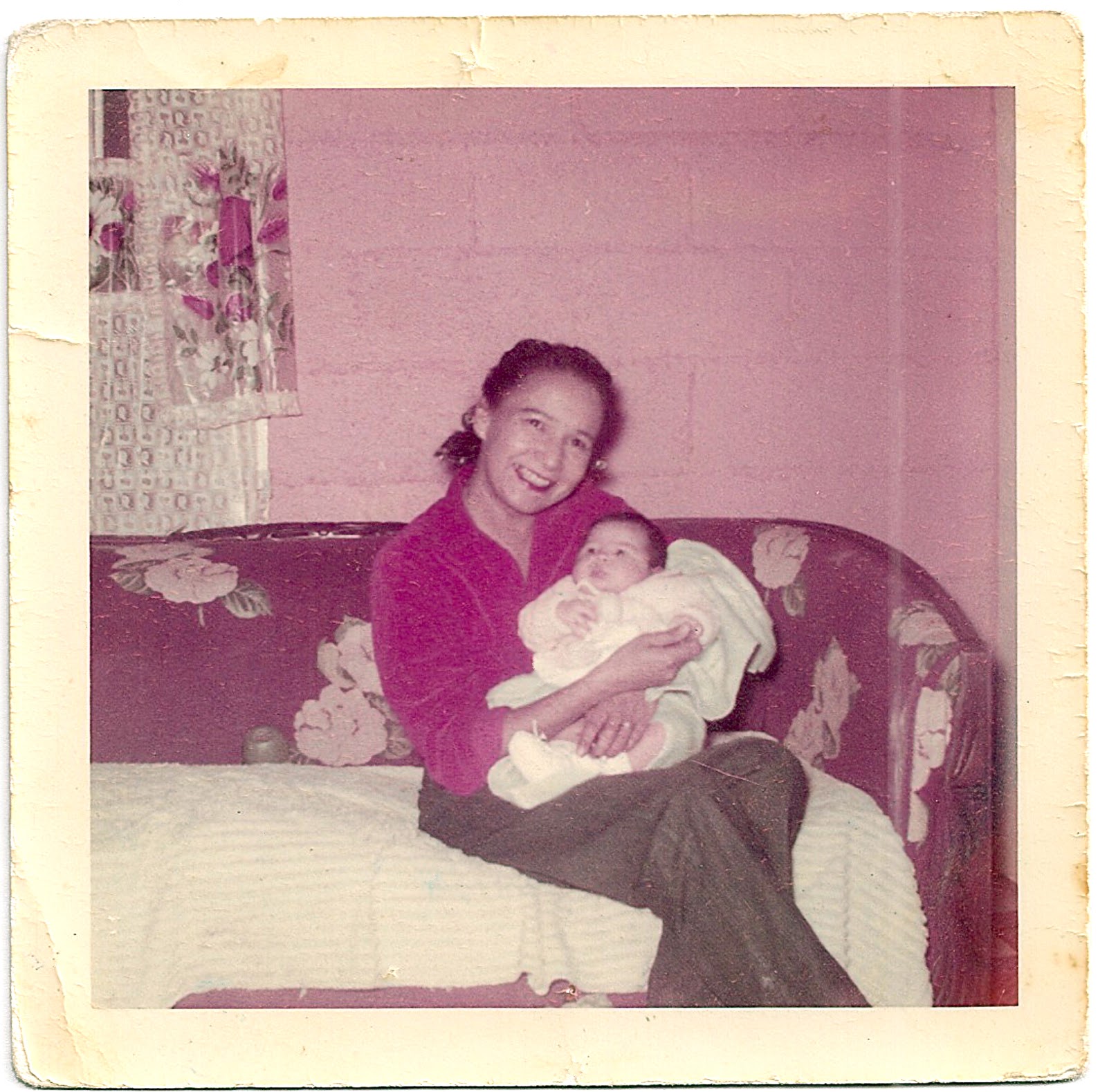May 05, 2020
Pictured above is Chief William Fisher at 3-4 months old, being held by Romere Martin in year 1956.
In times of crisis- it’s important to remember leaders and elders who have gone before us- leaving a lasting impression on our community, bringing hope when it is bleak. Though it’s been nearly fifty years since her passing, her legacy within our community lives on.
RoMere Martin (Darling) was born on the Pottawatomie Indian Reservation in Jackson County, Kansas, on July 20, 1911. Her birth name was Rosa Marie Grinnell, upon her moving to Hollywood to pursue a dancing and acting career, she changed her name to RoMere Darling. As a young and beautiful actress, RoMere played a variety of different roles in several films, oftentimes playing Native American or foreign character parts, throughout the 1930’s and 40’s.

She not only had exceptional acting abilities, but was also known for touring with Tex Ritter while performing traditional Native American dances. She met and married fellow thespian Harold Rogers, a Seneca-Cayuga member born near Tiff City, MO. Together they lived in Hollywood until he was killed in World War II when the B-17 bomber he helped crew as a tailgunner was shot down over Europe. After finding herself a widow, she moved back to Tiff City, and married Julius Martin, until his passing, in 1968, when she married Ovando Collman.
Romere Martin not only was remembered as an exceptional artist and actress, but perhaps even more significantly, for her contributions to Seneca Cayuga community members giving back and leading as a forerunner helping others accomplish their goals. Soon after her move to Tiff City, MO. RoMere employed local Native American women to make and sell native handicrafts. Perhaps what RoMere is most well known for, is her Box 14-A charity. A charity simply named off of her own personal P.O. Box number. Set up to benefit area Native American families in need. The program would offer toys and food packages during Christmas, distributed to families in need celebrating Christmas. She involved multiple leaders, groups, and individuals from the community. In an abandoned schoolhouse with her friends -she’d gather, firemen from Joplin, staffers of the Bureau of Indian Affairs, local volunteers from the community, and artists who could conduct carols and bring joy throughout the outreach. They would conduct deliveries on December 23rd of every year. If the tribal families couldn’t make it into town for the event, the gifts were directly delivered to their homes, regardless of how isolated they may be in the surrounding wooded hills, RoMere and her team would find a way. Box 14-A, brought an enormous sense of hope and joy throughout the holiday season.

The charity became rather famous in its’ day and was recognized nationally, as RoMere received a letter of commendation from President Richard Nixon for her good works among the Native American population in the Four-State area. Throughout the year she would teach tribal members how to dance, and even saw to it that a group of students would go to NY to display their talent on behalf of the tribal community. She was known for her generosity, and ability to take her gifts and share them with her community. Chief William Fisher vividly remembers her influence in his life as a child, she would always gift him silver dollars on his birthday, which he still has today! When she passed away, pot hanger Will Tarrent’s grandmother Amanda Greenback took it over for her from 1979-1992. Her legacy lives on as a member who led the way, taking initiative and doing good in the community, changing others’ lives as a result.
Thank you to Chief William Fisher for providing these photos.
